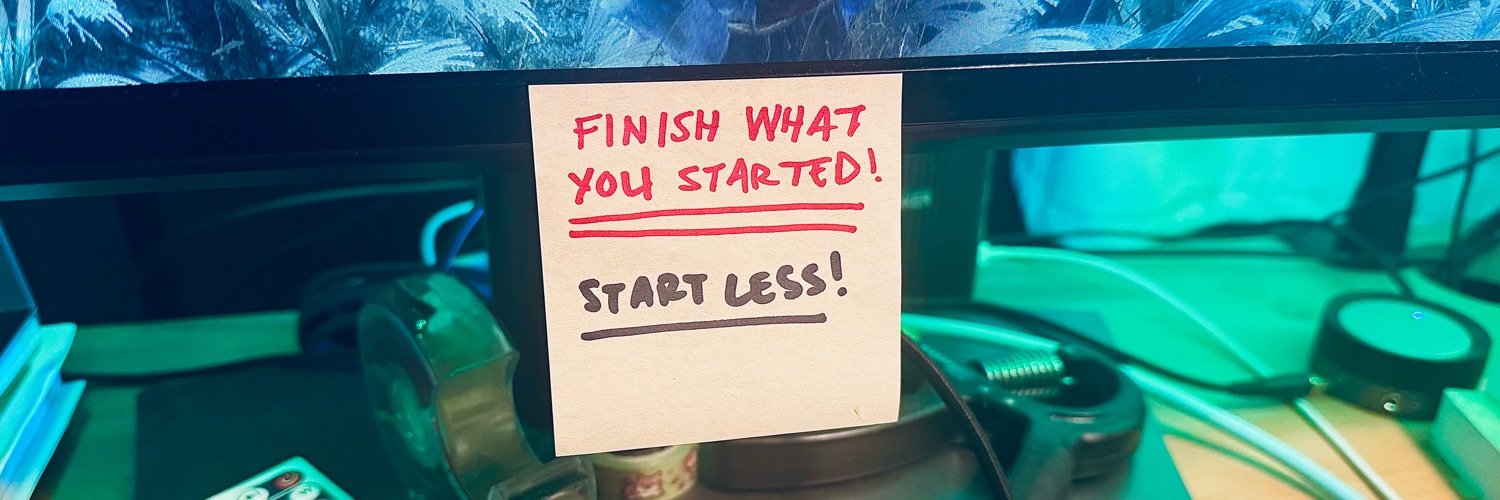On Capturing Ideas

I keep hearing this notion that if you don’t capture an idea, you’ll lose it forever. I think this is one of the fundamental anxieties of knowledge management.
We often treat ideas as tangible assets that can be lost, stolen, or stored away for safekeeping. This mindset creates an almost desperate urge to capture and preserve every passing thought. However, this approach might be fundamentally flawed. When we "recover" an old idea, we're no longer the same person who originally conceived it.
Our experiences, knowledge, and perspective have evolved. Similarly, when we share an idea with others, it becomes transformed by their unique context and understanding, essentially becoming their idea too.
We often sit in fear of sharing ideas because we worry they'll be stolen. Sometimes, though, our ideas are resurfaced back to us, transformed. They become more real and significant by being validated by others. Sometimes, even, your best idea is best executed by someone else. How confronting!
The Nature of Ideas
The anxiety around capturing ideas stems from viewing them as scarce resources. But ideas are more like patterns in our ever-changing minds than physical objects. They're expressions of our current state of being, influenced by:
- Our accumulated experiences.
- Our present context and understanding.
- The connections we're capable of making at that moment.
- Our emotional and mental state.
When we obsess over capturing every idea, we might be missing a crucial truth: ideas are not static objects to be preserved, but dynamic expressions of our evolving minds.
Rethinking Loss
What if "losing" an idea isn't actually a loss? Consider these possibilities:
- The space created by a forgotten idea might allow new, more relevant thoughts to emerge.
- Rediscovering an idea later, with fresh perspective, might lead to deeper insights.
- The process of repeatedly generating ideas might be more valuable than preserving specific ones.
- Our natural forgetting mechanism might actually be a feature, not a bug, helping us focus on what's truly important.
A Better Approach to Capture
If you're sitting down with an expectation to "capture everything I'm thinking about", you're going to do exactly that and, let me tell you, this category is non-exhaustible!
Instead of trying to capture everything, consider these more focused strategies:
Time-Bounded Capture
Set specific time limits for capture sessions (e.g., 60 seconds). This creates urgency and forces prioritization.
Scope-Limited Capture
Focus only on ideas related to specific projects or areas of interest. This prevents overwhelm and maintains relevance.
Priority-Based Capture
Record only ideas that meet certain criteria of importance or urgency.
The Art of Letting Go
Perhaps more important than capturing ideas is developing a system/evaulation method for letting them go. Ask yourself:
- How many times have you written down an idea without acting on it?
- What makes an idea truly "must-do" versus merely interesting?
- When is it appropriate to release yourself from self-imposed expectations?
These questions can be uncomfortable, touching on issues of ego, cultural expectations, and personal identity. However, they're essential for developing a sustainable practice of idea management.
Making It Social
"Having a social context in which new ideas are expected, appreciated, and refined creates the accordance to really think about things."
One powerful way to maintain accountability is through paired reviews. Whether daily, weekly, or monthly, involving others in your review process can provide valuable external perspective. Consider:
- Inviting colleagues to review project ideas
- Discussing personal goals with a spouse or friend
- Joining or forming a mastermind group
These social connections can help you identify patterns and blind spots through questions like:
- You keep saying this is important but aren't starting, what's going on there?
- This has been on your to-do list for 18 months, is it time to kill this zombie project?
- How would it feel to not be responsible for this any more?
I really, really love that last question.
Conclusion
By reframing our relationship with ideas as fluid and evolving rather than fixed and scarce, we can develop a more sustainable and effective approach to knowledge management. This might mean capturing less but implementing more, focusing on quality over quantity, and being willing to let go of ideas that no longer serve us.
Remember: The most valuable insights often aren't the ones we desperately try to preserve, but those that naturally resurface and evolve as we grow and change.
Return to index